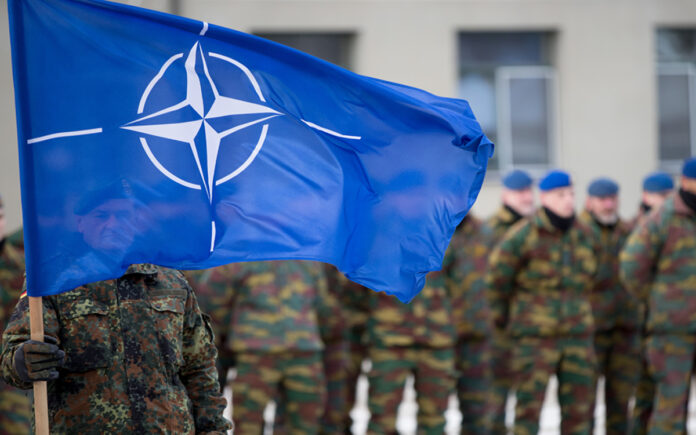Prague: NATO’s military committee head, Admiral Rob Bauer, stated on Saturday that Ukraine has both the legal and military right to strike deep into Russian territory to gain a combat advantage. This perspective aligns with the beliefs of several U.S. allies, despite the Biden administration’s hesitancy to allow Kyiv to use American-made weapons for such attacks.
“Every nation that is attacked has the right to defend itself. And that right doesn’t stop at the border of your own nation,” Bauer declared at the close of NATO’s annual military committee meeting. U.S. General CQ Brown, chairman of the Joint Chiefs of Staff, was also in attendance.
Bauer, who hails from the Netherlands, acknowledged that individual nations can impose restrictions on the weapons they provide to Ukraine. However, during the press briefing, Lieutenant General Karel Řehka, chief of the General Staff of the Czech Armed Forces, expressed that his country places no such restrictions on Ukraine’s use of weapons. “We believe that the Ukrainians should decide themselves how to use it,” Řehka stated.
These remarks come amid ongoing deliberations by U.S. President Joe Biden on whether to permit Ukraine to utilize American-provided long-range weapons to strike deep into Russia. Recent discussions have revealed divisions over this issue. Following a meeting between Biden and British Prime Minister Keir Starmer on Friday, U.S. officials indicated that Starmer was seeking Biden’s approval for Ukraine to use British Storm Shadow missiles for broader strikes in Russia. Since some components of the Storm Shadow missiles are made in the United States, Biden’s approval might be required. While U.S. officials, speaking on condition of anonymity, suggested Biden might be open to this idea, no official decision has been announced yet.
Supporting and training Ukraine was a central topic at the NATO chiefs’ meeting. It remains unclear if the debate over U.S. restrictions on long-range weapons was part of the discussions. Many European nations have vigorously supported Ukraine, partly due to fears of becoming the next target of an emboldened Russia.
During the meeting, Czech Republic President Petr Pavel urged military leaders to be “bold and open” in presenting their assessments and recommendations. “The rounder and the softer they are, the less they will be understood by the political level,” Pavel warned, emphasizing the need for decisive action to protect the allies’ countries and way of life.
Also Read | India to Sign $3.9 Billion Deal for 31 U.S.-Made MQ-9B Predator Drones by October
The United States currently allows Ukraine to use American-supplied weapons for cross-border strikes to counter Russian attacks. However, it restricts Kyiv from using long-range missiles like the ATACMS to strike deep into Russian territory. U.S. officials argue that Ukraine has drones capable of long-range strikes and should use the limited supply of ATACMS judiciously.
As winter approaches, Ukraine has intensified its appeals to Washington to lift these restrictions, fearing potential Russian gains during the colder months. Bauer highlighted the military rationale behind striking deep into Russia: “You want to weaken the enemy that attacks you… to weaken its logistic lines, fuel, ammunition that comes to the front.”
Also Read | British PM Accused of Breaching Parliamentary Rules Over Clothing Donations to Wife
U.S. General CQ Brown noted that the current U.S. policy on long-range weapons remains unchanged. However, he stressed the importance of Ukraine’s success with the capabilities provided by the U.S. and its allies, as well as the weapons Ukraine has independently developed. “They’ve proven themselves fairly effective in building out uncrewed aerial vehicles, in building out drones,” Brown added.
Defense Secretary Lloyd Austin echoed similar sentiments, emphasizing that no single weapons system would determine the war’s outcome. “There are a number of things that go into the overall equation as to whether or not you want to provide one capability or another,” Austin remarked, noting that Ukraine has already managed to strike inside Russia using domestically produced systems, including drones.



